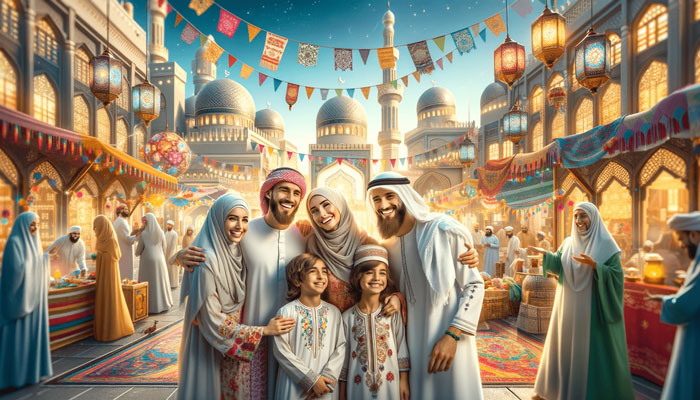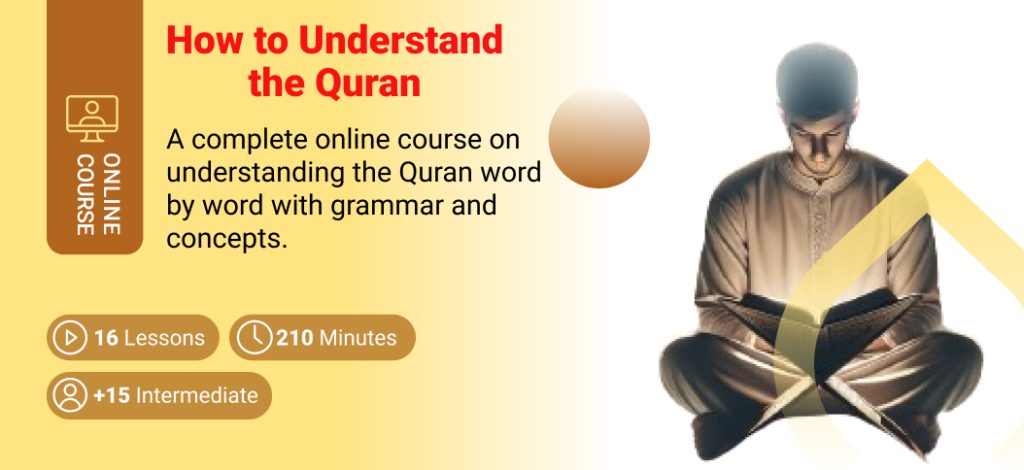Eid al-Adha
Contents
Intro
Eid al-Adha is the tenth day of the Hijri calendar Dhul-Hijjah, which is one of the major festivals of Muslims. The word ‘Adha’ is the plural of ‘Dhuha,’ meaning the height of the day and the extension of sunlight. It refers to the time of day when the sun rises (before noon), called ‘Dhuha’. Therefore, on this day, pilgrims in Mecca perform the ritual of sacrifice at sunrise and call it Eid al-Adha. The Arabic word ‘Eid’ means festival or celebration.
According to Islamic traditions, on this day, God tested His prophet, Abraham, by commanding him to sacrifice his son, Ishmael. He took Ishmael to the altar, but Gabriel descended with a ram, and Abraham sacrificed it instead of Ishmael.
The tenth day of Dhul-Hijjah and Eid al-Adha, which follows the standing at Arafat (a stage of recognition), Muzdalifah (a place of consciousness and awareness), and Mina (a land of desires and reaching love), is a day of liberation from worldly attachments and everything non-divine. In this grand pilgrimage to the House of God, Ishmael sacrifices his being, everything he has worldly attachment to, to become liberated and light.
Meaning of Sacrifice
Often, ‘sacrifice’ means performing any good deed to draw nearer to God’s mercy.
Making a sacrifice, therefore, symbolizes the ultimate devotion, selflessness, and absolute surrender to God. Just as we shed the blood of the sacrifice for God, we stand ready to defend the sanctity of religion and execute divine commands, willing to sacrifice our lives without hesitation or second thoughts.
Eid al-Adha History
The history of Eid al-Adha predates human civilization. Early humans made sacrifices of other humans and animals to appease their gods. Some of these instances:
1- The first recorded sacrifice in human history involves the children of Adam (Prophet Adam in Islamic tradition). Verses 27 to 30 of Surah Al-Ma’idah in the Quran describe how Cain and Abel, sons of Adam, offered a sacrifice. It was accepted from Abel but not from Cain.
2- After the flood, Prophet Noah arranged an altar and sacrificed many animals to God.
3- The Quran mentions Abraham’s sacrifice of Ishmael, known as Khalil Allah (Friend of God). It states, ‘And when he reached with him [the age of] exertion, he said, ‘O my son, indeed I have seen in a dream that I [must] sacrifice you, so see what you think.’ And we ransomed him with a great sacrifice’ (Verses 102 to 107 of Surah As-Saffat).
In Other Religions
4- According to Jewish belief, during the time of Prophet Moses, there were two types of sacrifices: the bloody sacrifice and the non-bloody sacrifice.
The bloody sacrifice split into several categories: 1. People offered sacrifices for health and consumed the meat themselves. 2. Some sacrifices were completely burnt, leaving only the skin. 3. Others made sacrifices to atone for sins, burning part and leaving the rest for the priests.
As mentioned in the religion and beliefs section of “Namnak,” the non-bloody sacrifice involved releasing an animal into the wilderness, a practice Arabs adopted from the Children of Israel to draw closer to their idols. Islam forbade this practice, deeming it undesirable. In verse 103 of Surah Al-Ma’idah in the Quran, these sacrifices are referred to as Bahira and Sa’iba.
5- In Christianity, according to its followers, the sacrifice was exclusive to Jesus Christ, who sacrificed his blood and flesh for the people of the world. For this reason, one of the religious practices of Christians involves going to a priest annually or at least once a year and offering a sum of money according to one’s ability, as well as confessing all sins for absolution.
6- During the pre-Islamic period in Arabia, with the arrival of tribal leaders in Mecca, the residents would host them and slaughter camels, cows, and sheep for their idols and also distribute the meat among the less fortunate.
Sacrifice of on Self
Eid al-Adha is a day for sacrificing one’s ego with the blade of piety. The act of sacrificing an animal symbolizes the slaughtering of the human’s animalistic tendencies. Therefore, to achieve spiritual perfection, individuals are inspired by the faith and piety of Prophet Abraham to strive to sacrifice their worldly desires and non-divine inclinations.
They endeavor to perform acts of purity and devotion solely for God’s sake, seeking to eliminate the lower aspects of their nature to get closer to the divine. This sacrifice represents a commitment to moral and spiritual growth, reflecting the ultimate submission and devotion to God.
Prophet Ibrahim Sacrifice
According to a narrative, Prophet Abraham told his only son, “Indeed, I have seen in a dream that I am to sacrifice you.” “What do you think?” he asked.
Prophet Ishmael replied, “O my father, do as you are commanded. You will find me, God willing, to be patient.” (Surah As-Saffat, Verse 102)
Then Abraham and his son went to the place of sacrifice. Along the way, Satan tried several times to tempt them and divert them from the path of truth, but Abraham, with his superhuman resolve, restrained his rebellious self and drove Satan away by throwing stones at him, a ritual now known as the Stoning of the Devil (Ramy al-Jamarat).
Upon reaching the site, Abraham placed the knife on his son’s throat, but no matter how hard he tried, the knife would not cut. God’s will prevailed and Gabriel intervened, preventing the knife from cutting. Instead, Abraham sacrificed a heavenly ram in place of Ishmael.
Shi’a Muslims, based on narratives and verses from the Quran, refer to Ishmael as the “Sacrifice of God” (Dhabih Allah). However, Jews believe Isaac was the intended sacrifice, while Sunni Muslims hold varying views on this matter. This story is a powerful testament to faith, obedience, and the willingness to make the ultimate sacrifice for God.
@islam4u.official
[insta-gallery id=”0″]


